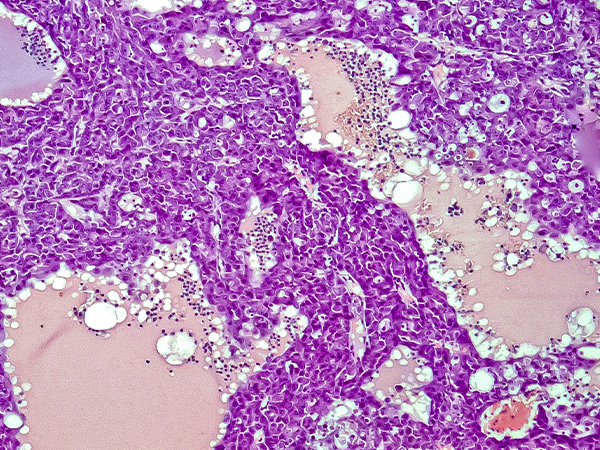A New Immunotherapy Combination for Advanced Liver Cancer
The FDA approved the combination of two checkpoint inhibitors for certain patients with hepatocellular carcinoma.
The U.S. Food and Drug Administration (FDA) has approved tremelimumab (Imjudo) in combination with durvalumab (Imfinzi) for adult patients with hepatocellular carcinoma (HCC)—the most common type of liver cancer—that cannot be surgically removed.
Tremelimumab and durvalumab belong to a class of immunotherapy drugs called checkpoint inhibitors, which enhance the body’s anticancer response by blocking certain proteins that stop the immune system from attacking cancer cells. These proteins are known as immune checkpoints. Tremelimumab blocks the CTLA-4 checkpoint protein present on T cells, and durvalumab blocks the PD-L1 checkpoint protein expressed on cancer cells.

The approval was based on the results of the randomized, open-label, phase III HIMALAYA clinical trial in patients with unresectable HCC who had not received prior systemic treatment. Study participants were randomly assigned to one of three treatment arms: tremelimumab plus durvalumab; durvalumab alone; or sorafenib, a molecularly targeted therapy approved for advanced HCC. The approval is based on the comparison of the tremelimumab plus durvalumab arm to the sorafenib arm (782 patients in total).
The tremelimumab plus durvalumab regimen resulted in a statistically significant improvement in overall survival compared to sorafenib: Patients who received the immunotherapy combination experienced a 22 percent reduction in the risk of death compared to patients who received sorafenib. The median overall survival was 16.4 months with tremelimumab plus durvalumab and 13.8 months with sorafenib. The median progression-free survival was 3.8 months and 4.1 months for the tremelimumab plus durvalumab and sorafenib arms, respectively. The overall response rate was 20.1 percent among participants who received tremelimumab plus durvalumab and 5.1 percent among those treated with sorafenib.
According to federal statistics, more than 41,000 new cases of liver and bile duct cancer were estimated to be diagnosed in the U.S. in 2022.
The approval was rendered on October 21, 2022.
